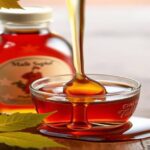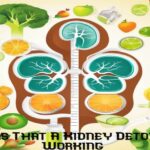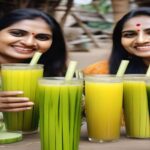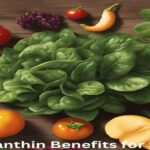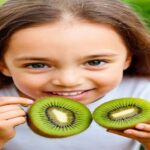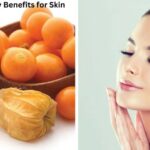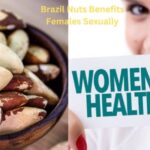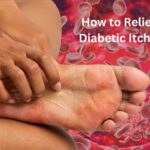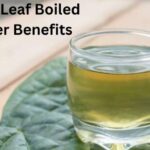Boost Your Eye health: Are you concerned about your eye health? Then it is time to eat food that looks good to the eyes and is suitable for them. A diet rich in vitamins, minerals, antioxidants, and carotenoids is necessary for healthy vision and eye health.
They provide essential nutrients to the eyes, reduce the damage done by UV exposure and free radicals and lower the risk of eye diseases. Want to know more about these super healthy foods? Then stay with us as we will share with you the 12 best foods that boost your eye health and improve your vision. So let’s go.
1. Eggs Is The Best Food That Boost Eye Health

Eggs are an excellent source of omega-3 fatty acids and are suitable for your eyes. Lutein, zeaxanthin, Vitamin A, and zinc are all essential for eye health, and they’re all found in egg yolks. Lutein and zeaxanthin are potent antioxidants that neutralize free radicals and reduce damage and inflammation. The cornea is protected by Vitamin A, while zinc improves the retina’s health. It is the membrane that lines the back of the eye. Zinc also aids in the nighttime vision of the eyes.
2. Fishes Are Good For Eye Health

Fatty fish like salmon, mackerel, tuna, and sardines contain healthy fats like omega-3 fatty acids. Can prevent macular degeneration, dry eyes, and cataracts can prevent macular degeneration, dry eyes, and cataracts with it. If you don’t consume seafood, fish oil pills, or vegetarian supplements like blackcurrant seed oil or flaxseed oil can help you receive enough omega-3s. According to a 2005 study, DHA and EPA, two omega-3 fatty acids, have a role in AMD prevention. Omega-3 fatty acids have many activities in the retina that promote neuroprotection. Examples include modulating metabolic pathways impacting oxidative stress, inflammatory processes, and angiogenesis.
Learn More Here 10 Natural ways to Improve Eyesight
3. Seeds

Seeds are abundant in omega-3 fatty acids and vitamin E. These are found at most grocery shops and on the internet. Omega-3-rich seeds include chia seeds, hemp seeds, and flax seeds. A study published in Biofactors shows that Vitamin E fights free radicals and prevents lipid oxidation. It is significant because the retina has a high concentration of fatty acids. Sunflower seeds are a tasty snack that is also excellent for your eyes. According to the American Institute of Physics, they’re high in vitamin E and zinc, so toss them into meals or trail mixes for a quick snack.
4. Carrots Are the Best Food That Boost Eye Health

According to WHO, about 250,000 to 50,000 children become blind yearly due to vitamin A deficiency. It contributes to blindness by making the cornea very dry and damaging the cornea and retina. And guess what? Carrots are an excellent source of beta-carotene, which our body converts into vitamin A. It is also rich in antioxidants and protects the eye from oxidative damage and inflammation. You can add carrots to your diet by replacing unhealthy snacks with them or enjoying refreshing carrot juice.
5. Lamb

Lamb is rich in vitamin A and zinc, essential for eye health. Zinc is present in the retina and the vascular tissue that borders the eye’s retina. According to Dietary Supplement Fact Sheets of Zinc, Meats like chicken breast and pig loin contain zinc, albeit in lower quantities than lamb. But remember, it should be lean and must be eaten in moderation as it is rich in saturated fats and harmful in large amounts.
6. Whole Grains

Foods with a high glycemic index (refined carbohydrates) are bad for your eyes, but foods with low glycemic indexes are good. One such example is whole grains. According to Nutrition Today, Macular degeneration is prevented by eating a diet rich in whole grains such as seeded bread and brown rice. Vitamin E, zinc, and niacin are all found in whole grains, and they can drastically enhance eye health and lower your chances of cataracts and macular degeneration. Vitamin E has also been linked with reducing the advancement of vision loss in the elderly. We’ve made it halfway through our list, and we sincerely hope you’ve enjoyed it so far.
7. Dairy
Dairy products like milk and yogurt are excellent vitamin A and zinc sources. As stated in the study: Clinical Interventions in Aging, Vitamin A defends the cornea, and zinc aids in delivering that vitamin from the liver to the eyeballs. Zinc is distributed throughout the eye, particularly in the retina and choroid (the circulatory tissue behind the retina). This vital mineral aids with night vision as well as cataract reduction.
8. Fruits of The Citrus Family

Vitamin C is abundant in citrus fruits. Vitamin C, just like vitamin E, is an antioxidant that the American Optometric Association recommends for preventing age-related vision loss. Citrus fruits high in vitamin C include lemons, oranges, and grapefruits. Additionally, these citrus fruits are also rich in bioflavonoids which enhance the clarity of the vision and help focus better.
9. Sweet Potatoes Is Good Food That Boost Eye Health

According to the National Institute of Health, Vitamin A protects the cornea and is a component of the pigment rhodopsin, which converts light into electrical impulses perceived as vision. While carrots are frequently praised for their vitamin A content, sweet potatoes have three times the amount of vitamin A activity (one medium-baked sweet potato provides 150 percent of the Daily Value). Are you thinking about how to add them to your diet? Well, they taste great when baked or boiled. You can mash them up or drizzle some olive oil and your favorite spices to enhance the flavor.
10. Spinach

Vitamins E, A, B, and C, elements like iron and zinc, and micronutrients like Lutein and zeaxanthin are abundant in spinach. Lutein and zeaxanthin, two carotenoids, have antioxidant and anti-inflammatory activities. According to the Journal of Science of Food and Agriculture, eating enough spinach can help against macular degeneration and cataracts. And as it is also high in zinc, it helps maintain the cornea’s health.
11. Kale Is Magical Food That Boost Eye Health
Many people consider kale a superfood since it contains many essential vitamins, nutrients, and minerals. It is particularly beneficial to the health of the eyes. As stated in a study from Food science and nutrition, the antioxidants lutein and zeaxanthin, also present in eggs and other foods, are found in kale. And these minerals may aid in the prevention of significant eye disorders, including macular degeneration and cataracts. The human body does not produce Lutein and zeaxanthin; thus, they are taken into the diet. A cup of raw kale contains almost two times the amount linked with health benefits. Red peppers and spinach are two more foods high in Lutein.
12. Nuts And Legumes
Are you looking for a healthy vegetarian option for your eyes? Nuts and legumes are the way to go. Kidney beans, chickpeas, black-eyed peas, and lentils are high in zinc. A can of baked beans will also suffice. Omega-3 fatty acids are abundant in nuts. According to the study published in the Journal Nutrients, nuts are rich in vitamin E, which helps protect the eyes from damage caused by aging. The amount of vitamin E in an ounce of these seedlings or almonds is half what the USDA advises for individuals daily. Considerable research in the Journal of Clinical Sciences indicated that vitamin E and other substances help reduce the progression of growing age macular degeneration (AMD). It will aid in the prevention of cataracts. Vitamin E is also present in peanuts, hazelnuts, and peanut butter.
Conclusion
You can eat them as snacks or add them to your meals; They will enhance the flavor and nutritional content. Most people may acquire all their nutrition for good eye health by eating a splendid diet rich in fruits, vegetables, and lean meats. Talk to your doctor about eye health supplements if you don’t get enough of these nutrients from your diet.
People with visual difficulties or who follow a tight diet should see an eye doctor about the best things to consume. A balanced diet is critical for eye health. Maintaining an antioxidant-rich diet will help avoid significant eye diseases and ensure your eyes perform at their best. Daily, try to consume a variety of complete, unprocessed foods. If you’re having eye difficulties, see your doctor immediately since early treatment can prevent more severe problems.

